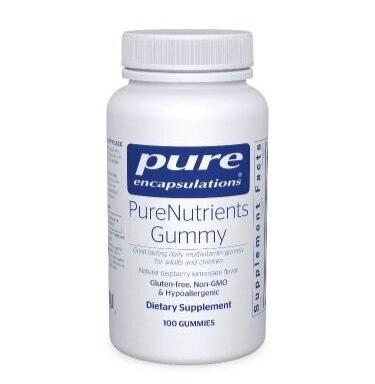The Best Multivitamins for Children with Autism
Multivitamins are a great way to fill in the gaps for rigid eaters and to replenish other missing nutrients. It’s impossible to make a blanket recommendation for a multivitamin because each child has their own unique needs, unique food preferences, and may have a variety of food restrictions due to allergies or other health preferences.
One of my favorite sayings is “you can’t out-supplement diet”, meaning, you can’t just use a multivitamin and expect to be in the best health without making any diet changes. It’s always best for us to get our nutrients primarily from the food we eat. It should be used as a supplement to a healthy diet.
WHO SHOULD TAKE A MULTIVITAMIN?
Children who are picky eaters (consume fewer than 20 foods on average)
Children following restricted diets (gluten-free, casein-free, GAPS, plant-based, to name a few)
Children with known gastrointestinal issues and/or poor intestinal absorption
Children who test positive for one or both MTHFR mutations
Children with known nutrient deficiencies
What you should look for in a multivitamin:
Since nutrient needs vary based on the individual, here are a few basic things to look for in a multivitamin for your child with autism:
Contains all fat-soluble vitamins: vitamins A, D, E, & K
Contains active/methylated B vitamins for optimal absorption and methylation. Here is a list of all active B vitamins:
B1 → thiamin HCl
B2 → riboflavin 5’ phosphate
B3 → niacinamide
B5 → pantothenic acid
B6 → pyridoxal 5’ phosphate (P5P)
B7 → biotin
B9 → L-5-MTHF (L-methylfolate) [vitamins with folic acid instead are not recommended]
B12 → methylcobalamin, adenosylcobalamin, or hydroxycobalamin [vitamins with cyanocobalamin instead are not recommended]
Contains at least 100% %DV vitamin C
Contains vital minerals like calcium, magnesium, potassium, iodine, zinc, selenium, chromium, and molybdenum.
Since calcium and iron compete for absorption, choose a multivitamin that doesn’t contain iron. Take a separate iron supplement away from the multivitamin
Choose a vitamin that contains vitamin D3, as it helps raise and maintain vitamin D levels more effectively than vitamin D2
Multivitamins that have been third-party tested to ensure quality (i.e. USP)
Read all of the ingredients to ensure no artificial colors, flavors, artificial ingredients, or allergenic ingredients (like milk or wheat) have been added.
(Optional) Find a product that has added ingredients that boost brain or antioxidant functions like CoQ10, choline, inositol, NAC, L-Carnitine, and curcumin (turmeric).
Other Multivitamin Tips
Choose multivitamins with at least 100% of all B vitamins. Fat-soluble vitamins and minerals may not reach 100%, and that’s okay. These are typically made up in the diet. Excessive levels of fat-soluble vitamins can build up in the body and become toxic while water-soluble vitamins will be excreted in the urine.
Take multivitamins at meals to prevent upset stomach or nausea
To increase absorption, take with meals and take in split doses, since you can only absorb so many nutrients at once
Some individuals find it hard to sleep after taking a multivitamin at night, so evaluate for tolerance.
Picky eater? Read the blog “5 Tips to Get Your Child to Take Supplements”
My Favorite Options
Multivitamin Powders
Multivitamin Capsules
Multivitamin Gummies
For added iron…
Check out my blog “How to Spot the Signs of Iron Deficiency and How To Treat It”
Liquid: Pure Encapsulations Liquid Iron
Chewable: Carlson Chewable Iron
Dissolvable tablet: Renzo’s Iron Strong Vitamin
Looking for Nutrition Guidance & Community?
*Autism Dietitian is a participant in the Amazon Services LLC Associates Program, an affiliate advertising program so that when you click through our Amazon links, a percentage of the proceeds from your purchases will go to Autism Dietitian LLC. Program participation does not influence product recommendations.
The Content is not intended to be a substitute for professional medical advice, diagnosis, or treatment. Always seek the advice of your physician or other qualified health provider with any questions you may have regarding a medical condition. Never disregard professional medical advice or delay in seeking it because of something you have read on this Website.







